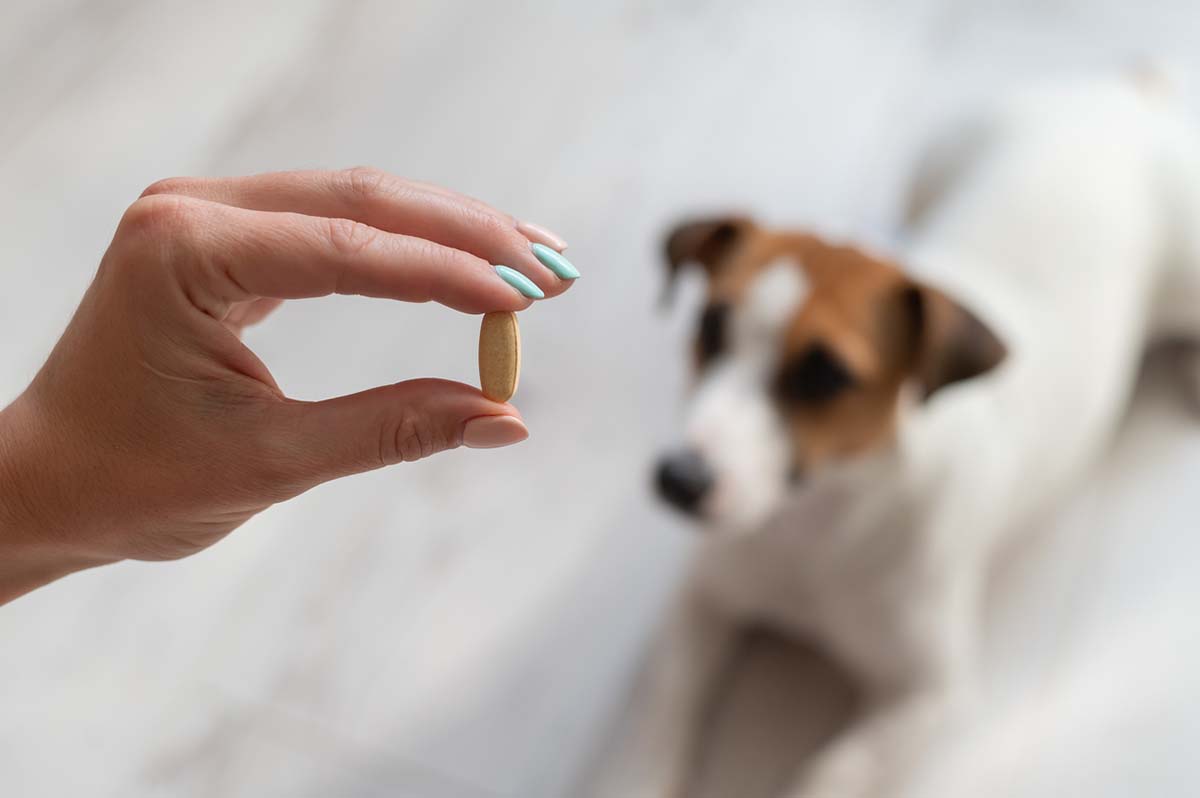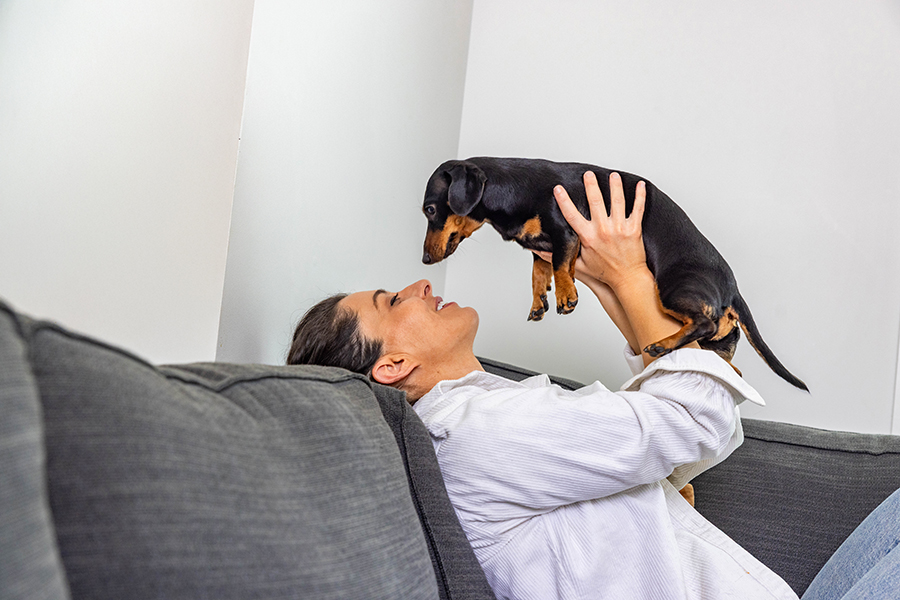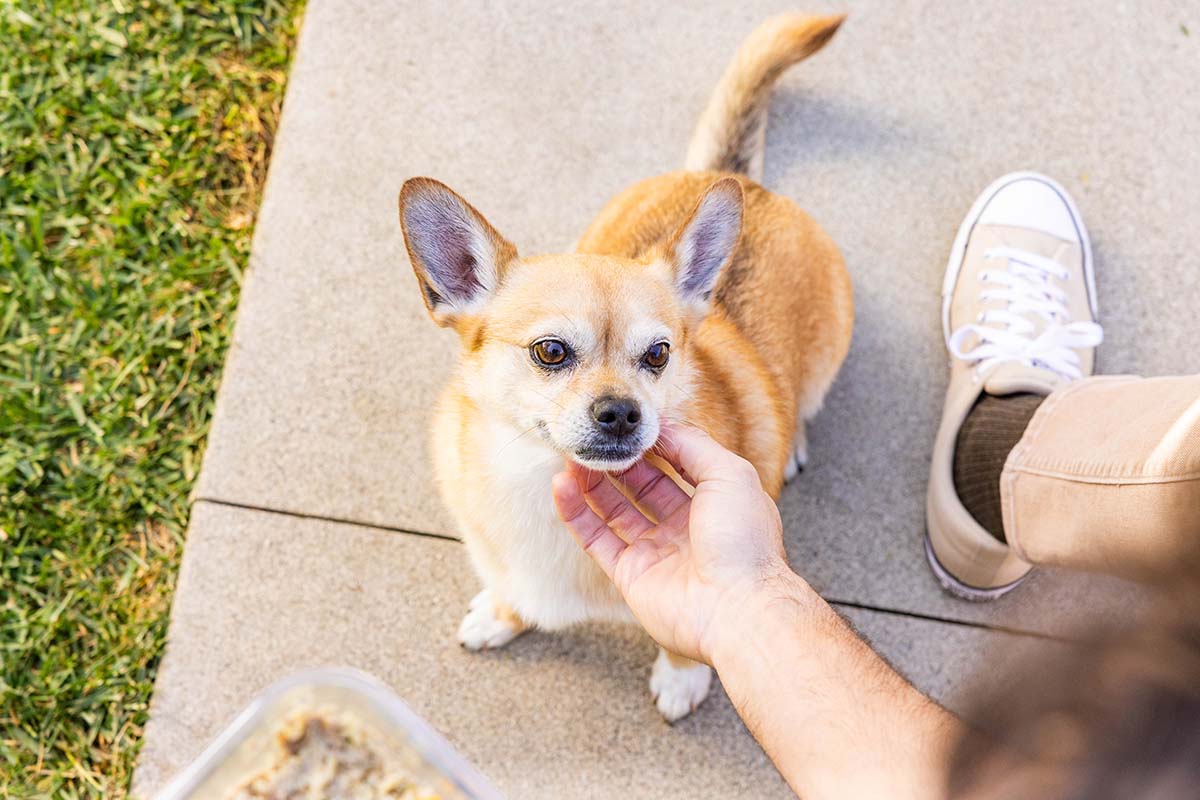Human Medications That Are Toxic To Dogs
Keep these common human medications far away and out of reach from your pets.
You can share plenty of things with your dog, like certain human foods or favorite blankets. High on the list of things pet owners shouldn’t share with dogs are several human medications.
Why are human medications toxic to dogs? The short answer is that dogs metabolize medications differently than humans. Their bodies aren’t able to process the same way ours can.
If your dog is experiencing pain or discomfort it can be tempting to want to provide them with some relief. Unfortunately, human medications you may have on hand aren’t always the answer.
Which Human Medications Are Safe For Dogs?
While most human prescription medications are toxic to dogs, there are a handful of over-the-counter and prescription medications that are designed for humans but generally harmless to dogs if ingested.
We don’t recommend sharing these human medications with your dog on purpose, but you can worry a little less if your dog ingests the following in small amounts:
- Hormonal birth control pills
- Allergy medications, like Benadryl
- Thyroid hormones
- Loperamide, also called Imodium (sometimes even recommended for dogs!)
Keep a close eye on your dog anytime they’ve eaten something they’re not supposed to, including these medications. If your dog starts to display any symptoms of poisoning (lethargy, vomiting, diarrhea, incoordination, increase in body temperature) call Animal Poison Control right away.
Which Human Medications Are Toxic To Dogs?
Different drugs can cause a number of different reactions. Some of the side effects from these medications can be dangerous and even life-threatening to dogs. Whether the parts of these medications that are harmful to dogs are active or inactive ingredients, even trace amounts can cause illness or severe health problems.
- Ibuprofen medications, like Advil or Motrin
- Acetaminophen medications, like Tylenol
- NSAIDs (Nonsteroidal Anti-Inflammatory Drugs) medications containing naproxen, like Aleve
- ADD/ADHD medications, stimulants, and amphetamines like Adderall and Ritalin
- Antidepressant medications, like Cymbalta and Effexor
- Anxiety medications, like Xanax and Lexapro
- Benzodiazepines
- Sleep aids, like Ambien and Lunesta
- Seizure medications, like Klonopin
- Beta-blockers, ace inhibitors, and high blood pressure medications, like Toprol
- Cold and fever medications containing pseudoephedrine, like Sudafed
Conditions that can result from dogs ingesting the medications above include:
- nausea
- vomiting
- dangerously low blood pressure
- liver damage or even liver failure
- kidney failure
- stomach ulcers
- low red blood cells
- elevated heart rate
Are Vitamins and Supplements for Humans Toxic to Dogs?
While dogs also need vitamins and minerals in their diet, some of the ingredients in supplements for humans can be extremely toxic to dogs. There are several vitamins and probiotics for dogs on the market, but your daily multivitamin doesn’t have the same benefits for them as it has for you and can even be harmful.
Which Ingredients Are Harmful To Dogs?
Vitamins and supplements intended for humans, especially multi-vitamins, often contain high amounts of vitamin D. Ingesting too much of it can cause serious health problems for dogs, including vomiting, diarrhea, and loss of appetite. In some cases, high amounts of vitamin D can cause liver damage and even kidney failure in dogs.
Iron is another ingredient found in many supplements that’s a great benefit to human bodies, but can’t be processed the same way in the bodies of our four-legged family members. Dogs who have too much iron might experience side effects like abdominal pain, irritation in their gastrointestinal (GI) tract, or even the potential for heart issues.
Lots of supplements for humans contain caffeine as well, and caffeine doesn’t just come from coffee. It can also come from cocoa extracts, green tea, or guarana (a food additive and natural source of caffeine).
While these are all plant-based sources of caffeine perfectly safe for humans, for dogs it can be a more dangerous story. If ingested, caffeine can cause hyperactivity and increased heart rate in dogs. It can also cause high blood pressure or cardiac arrhythmias (irregular heartbeats) which can be very dangerous.
Xylitol is another ingredient found in many combination vitamins for humans that are toxic to dogs. It’s an artificial, plant-based sweetener often used as a sugar substitute. Avoid giving your dog any food or medication that contains xylitol, and always ask your veterinarian if you’re unsure about a supplement or medication’s ingredients.
What Should I Do If My Dog Ingests Human Medication?
If your dog ingests a small amount of human medication (depending on what it is), such as one or two pills dropped on the floor, monitor them immediately following. If your dog ingests a large dose of human meds, such as an entire pill bottle’s worth that may have spilled, don’t wait and call the Pet Poison Helpline or the ASPCA Animal Poison Control Center right away.
Pet Poison Helpline: (800) 213-6680
ASPCA Animal Poison Control Center: (888) 426-4435
How Common Is Pet Poisoning by Human Medication?
While we certainly hope it never happens to you or your dog, pet poisoning by human medication might be more common than you think. A study by the National Institute of Health found that one of the main causes of poisoning and overdoses in small pets like cats and dogs is ingestion or exposure to medications meant for human use only.
Tips To Prevent Your Dog From Accidentally Ingesting Human Medications
Of course, you want to keep your dog far from harm’s way. Their health and safety are in your hands when it comes to poison prevention from human medication.
Only give your dog veterinary medicine prescribed by your dog’s vet. They’re the experts on your pet’s health and medication needs. So always ask their opinion before giving your dog medications made for humans or pets.
Avoid leaving pill bottles open or in places your dog can reach them. Once you’re through taking your human-prescribed medication, make sure to securely close the pill bottle and put it away in a drawer or cabinet.
Pick up any pills that you drop right away before your pet can get to them. For medications that fall into hard-to-reach places, don’t wait to pull out the vacuum or the broom. Make sure you get them out of reach ASAP to keep your pet safe.
Video: Thoughts from Experts in Veterinary Toxicology
Dr. John Tegzes, VMD, Diplomat American Board of Veterinary Toxicology from Western University of Health Sciences shares his insight on the No. 1 poison for dogs. It’s not what you might think.
This content is for informational use only and does not replace professional nutrition and/or medical advice, diagnosis, or treatment. It is not a substitute for and should not be relied upon for specific nutrition and/or medical recommendations. Please talk with your veterinarian about any questions or concerns.








